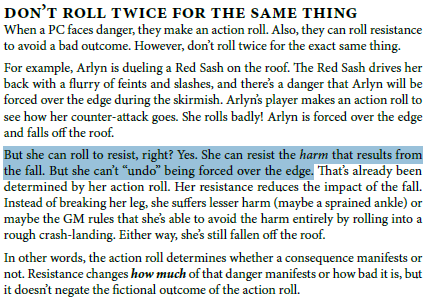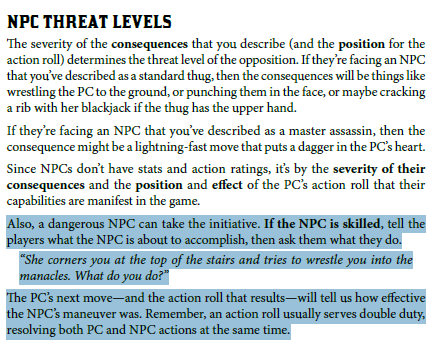Got a few rules questions for the experts. Thanks in advance for any and all replies…
-
In a recent session one of our players had his pistol pressed against the head of a bad guy and he pulled the trigger… and rolled nothing above a 3. I ruled that the bad guy jerked his head at the last second and tried to make a break for it. My question is, could the PC have resisted this and turned that shot into a hit? I admit to enjoying the moment a bit and taking the opportunity to turn what would have been an easy but underwhelming murder into a chase scene that ended on rooftop in far more dramatic fashion. However, in thinking about it later I wondered if I’d done the player a disservice by not offering him the chance to resist. Would there have been a happy medium here, whereby the consequence of the terrible roll was avoided yet the NPC was still not killed outright.?
-
Our Whisper took Compel as his starting ability, which is great. His go-to move3 is to try to find a ghost to apply to whatever problem the crew is facing. My question is, how easy is that for him to do? Just how common are ghosts in the city? I’ve just been rolling a couple of dice and letting him find a ghost on a 4, 5, or 6, but I feel like this is an imperfect system.
-
The crew is Tier II and they kind of inherited an NPC physicker early on in their career. I’ve basically ruled him an expert cohort by now. My question: Should he be rolling three dice, as per the rules under cohorts (cohort quality is crew tier +1)? Under the recovery rules it just says to roll the NPC’s tier, but I’m starting to suspect that he should get that third dice.
-
How long does Not To Be Trifled With last? Is it only for the single action, or for an entire combat?
-
Does our Leech need to craft new grenades/potions/etc after using them, or are they just assumed to refill during downtime?
Again, thanks for your input.

